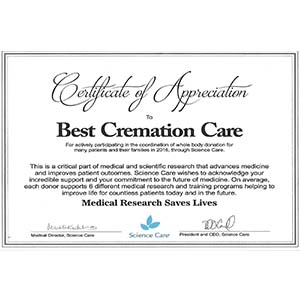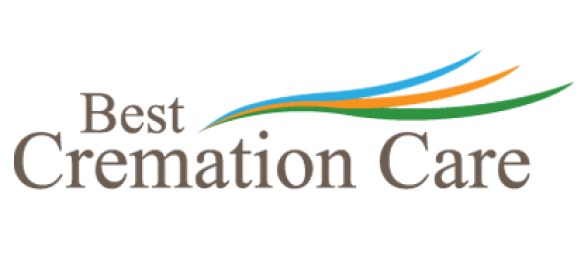Tissue donation facts you should know
 Last month was National Donate Life Month (NDLM). As I watched the media coverage, I was reminded of a phrase that made a lasting impression on me: anatomical gifts. That’s a great way of describing tissue donation because that’s what it truly is. Voluntarily donating your body for research improves the lives of other people. Here are some straightforward tissue donation facts you should know about whole body tissue donation, one of the common options families choose to provide a legacy for their loved one.
Last month was National Donate Life Month (NDLM). As I watched the media coverage, I was reminded of a phrase that made a lasting impression on me: anatomical gifts. That’s a great way of describing tissue donation because that’s what it truly is. Voluntarily donating your body for research improves the lives of other people. Here are some straightforward tissue donation facts you should know about whole body tissue donation, one of the common options families choose to provide a legacy for their loved one.
Cost of body donation
Let’s address the bottom line right off the bat: cost. There typically is none not to the donor or donor family. The receiving party pays the costs related to the donation. The tissue bank covers the reasonable expenses. There is already a shortage of donations; why would they drive away potential donors with fees? That wouldn’t make any sense. If any such bill arrives in error, contact the tissue bank.
Who qualifies?
Next, don’t assume your loved one is too unhealthy to be a donor. Diseases that may keep your loved one from donating a particular organ may not rule out the tissue. Tissue donation is used by researchers and educators that need human tissue to do their important work. It offers people the chance to make a contribution that benefits others.
Other body donation options
Besides whole body tissue donation, there are other options you may want to discuss with your loved ones. Medical research donations help current, and future medical professionals learn more about diseases such as cancer, diabetes, Alzheimer’s and much more. Ask any physician, and they will likely tell you how valuable cadavers were in their learning experience. You may be interested to know many medical schools have a memorial service at the end of their training in recognition and respect for their donors.
This is only a sampling of answers donors and their families should have before making their decision. At Best Cremation Care we want to empower you with the knowledge you need. Please call us for more information about how to register for whole body donation.
How are tissue donations used in research?
- Heart disease
- Diabetes
- HIV
- Spinal injuries
- Joint replacements
- Colon and liver treatments
- Breast cancer
- Reproductive advancements
- Advanced drug delivery
- Paramedic training
- Cancer research
- Osteoporosis
- Alzheimer’s research
- Cochlear implant developments
Source: Science Care, 2017
Best Cremation Care provides affordable cremation services throughout the Bay Area (San Francisco, Oakland / Alameda, and San Jose / Santa Clara) and Southern California (Los Angeles, Long Beach, Orange County, Riverside County, San Bernardino County, and San Diego County). We are a licensed funeral establishment and have an A+rating from the Better Business Bureau.


